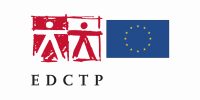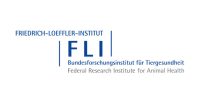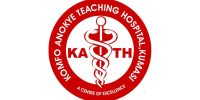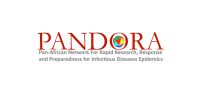Funder:
German Research Foundation (DFG)
Amount: €67,770 + €30,000.00
Project Period: 01 September 2018 -31 August 2024
Research Team Members:
Dr Eugene Adade
Collaborating institutions
Friedrich-Loeffler-Institut, Germany
Sokoine University of Agriculture, Tanzania
Muhimbili Medical Research Centre, National Institute for Medical Research, Tanzania
German Primate Center, Leibniz-Institute for Primate Research, Germany
Overview of the Project:
It has been propagated that human yaws caused by the bacterium Treponema pallidum subsp. pertenue (TPE) has no animal reservoir. Yet, reports of T. pallidum (TP) infection in nonhuman primates (NHPs) are accumulating. Several studies demonstrate simian infection with strains that are most closely related to human yaws- causing TPE strains. Our DFG funded study on NHP infection further supports the above mentioned findings. Data on simian TP strain diversity in Tanzania (TZ) are accumulating and reveal epidemiological insight into the spread of this conspicuous bacterium across the country. From our phylogenetic results, we hypothesize that humans and NHPs in TZ share the same TP(E) strains and also that NHPs in (Ghana) GH are infected with TP. While GH reports yaws until today, there is a chance of hidden TPE infections in humans in TZ, a country that currently does not report yaws, but harbors a great number of infected NHP species. DNA based assays (e.g. LAMP) are designed to fast-track identification on the subspecies level complementing the serological testing. This will increase specificity of yaws diagnosis from atypical clinical manifestations followed by whole genome sequencing. Simian and human TP strains from Africa have not yet been investigated using an integrated approach, and the results obtained are crucial for the understanding of Treponema evolution and epidemiology as well as to answer the important question on inter-species transmission.
The project aims to combine basic research in the field of Treponema infection with continues One Health capacity building and early-career research training at the African locations. A South-South partnership is created to support scientific excellence in the field of infectious disease research, addressing an urgent need in TZ and GH. Research activities of this project are logically expanded towards a yaws endemic country (GH). The project is expected to improve local health care services in TZ and GH and has the potential to support public health initiatives in post-yaws Mass Drug Administration surveillance.
Expected Impact:
Apart from answering our scientific questions, the project would also build the capacities of young scientists and further strengthen north-south and south-south research partnership among collaborating institutions.

Animal being sampled by field team for laboratory investigation

Field Team being trained in the shooting of wild animals for investigative purposes

Field Team being trained in the shooting of wild animals for investigative purposes







South-end Asuogya Road,
KNUST, Kumasi
Ghana
GPS: AK-312-1059
Monday – Friday
8am – 5pm
Monday – Sunday
8am – 5pm
KUMASI CENTRE FOR COLLABORATIVE RESEARCH IN TROPICAL MEDICINE
Copyright © 2025. All rights reserved